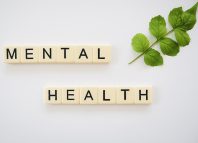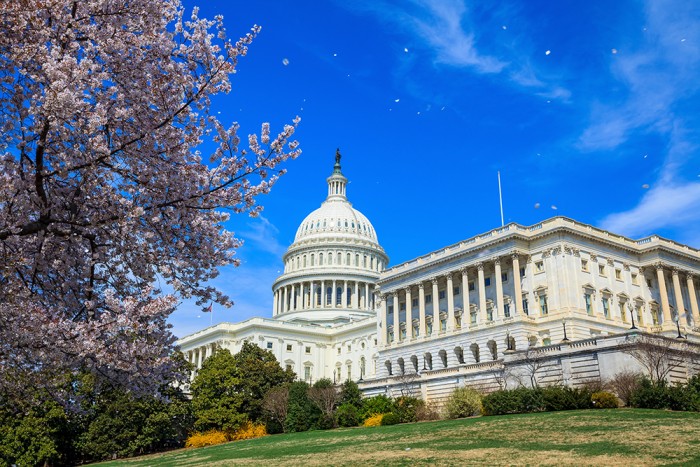What’s in the American Rescue Plan?
Executive Summary
On March 10, 2021, the U.S. House of Representatives passed the American Rescue Plan of 2021 (ARP) on a 220-211 vote. President Biden signed the bill into law the following day, March 11. Originally compiled in nine House Committees over the past month, the Senate amended and passed the ARP the week before on a 50-49 vote before the bill was sent to the House for the final vote. The ARP is a $1.9 trillion economic stimulus package that was passed through the budget reconciliation process as a response to the economic and health effects of the COVID-19 pandemic.
The ARP contains strong provisions intended to assist working individuals and families, COVID-19 pandemic support and vaccination response funding. Additionally, the bill contains measures directed to supporting working families in the US, including $1,400 direct stimulus payments to qualifying individuals, continued unemployment insurance benefits and an overhaul to the Affordable Care Act.
The House-proposed minimum wage increase to $15 per hour was ultimately excluded from the Senate version of the bill due to Byrd Rule limitations on the budgetary reconciliation process. This allowed Senators to object to the specific provision of the reconciliation bill that would have increased the minimum wage, while the Senate Parliamentarian ruled the provision did not meet the change in spending requirement necessary to be contained in a reconciliation bill. Below are highlights of the bill that may impact ANCOR members.
ANCOR Priorities & Public Health Provisions
Home and Community Based Services
HCBS is currently funded as a set of optional services offered through HCBS waivers or state Medicaid plans. The original ARP language increased the HCBS Federal Medical Assistance Percentage (FMAP) by 7.35% for one year beginning on April 1, 2021. The final ARP HCBS provision increased the FMAP bump from 7.35% to 10%. The ARP also includes funding for the establishment of nursing home strike teams to manage COVID-19 outbreaks.
Paycheck Protection Program (PPP)
The ARP has increased business and organization eligibility for the program, notably now including most 501(c)(3) nonprofits that employ fewer less than 500 employees per physical location, rather than overall. An additional $7.25 billion has been authorized for the PPP.
Provider Relief Fund
An additional $8.5 billion is allocated for rural providers that serve Medicaid and Medicare beneficiaries. The funding must be used by providers for COVID-19-related expenses, such as increased workforce training, medical supply purchasing or lost revenue due to the public health crisis.
Public Health Funding
The ARP designates $7.5 billion to the CDC for the planning, distribution and tracking of COVID-19 vaccines. A further $7.6 billion is directed to provide state, local and territorial public health departments with funding for staff, equipment and other supplies to combat the public health crisis.
Medicaid/CHIP Vaccine
State Medicaid programs and the Children’s Health Insurance Program are required to provide COVID-19 testing, vaccines and treatment without cost sharing for one year after the end of the public health emergency.
Funding for State, Local & Tribal Governments
The ARP provides $350 billion in funding relief to states, localities and tribes. States, including the District of Columbia, will receive $195.3 billion; local governments will receive $130.2 billion; and tribal governments will receive $20 billion. The funding is available until December 31, 2024.
Public Health Workforce
The ARP robustly provides $9.1 billion to support the public health workforce. Of this, $7.7 billion is established for expanding and continuing the recruitment, hiring and training of public health workers to sustain state and local public health departments.
FMAP Increase for ACA Expansion
For states that have not expanded Medicaid eligibility and coverage to meet current Affordable Care Act (ACA) criteria, the ARP incentivizes the adoption of ACA standards by offering such states an additional five percentage-point increase in the state’s FMAP for two years.
Other Important Provisions
Earned Income Tax Credit
For Tax Year 2021, the credit amount and income limit at which the credit is adjusted will both be increased. Additionally, workers over the age of 65 will be eligible to claim the credit.
Child and Dependent Care Tax Credit
The ARP is making significant changes targeted toward reducing child poverty. This reinforcement of the social safety net includes a one-year-though expected to become permanent-initiative of raising the $2,000 Child Tax Credit to $3,000 for children under the age of 18 and to $3,600 for children under the age of 6 (previously, 17-year-old children were ineligible). Periodic payments are also authorized, as opposed to the traditional lump sum measure.
Support for Low Income-Families
The ARP allocates $4.5 billion to LIHEAP, the Low-Income Home Energy Assistance Program, which helps families offset home heating and cooling costs. The Special Supplemental Nutrition Program for Women, Infants and Children (WIC) will also provide $35 in additional monthly payments per person to women and children as part of a temporary, four-month increase.
Child Care and Development Block Grant (CCDBG)
The ARP has authorized $15 billion for the CCDBG program, which could specifically be used for health care workers regardless of income. An additional $24 billion is allocated for a childcare stabilization fund intended to be used for childcare personnel expenses, cleaning supplies and personal protective equipment, and mental health supports.
Funding for the Individuals with Disabilities Education Act
Grant funding has been increased for qualifying public education programs, including $2.58 billion for states, $200 million for preschool grants and $250 million for infant and toddler programs.
Medicaid Coverage for Pregnant and Postpartum Women
States are now allowed to offer full coverage and benefits to women during their pregnancy and up to a year after the last day of pregnancy. This would drastically extend coverage past the current cutoff of 60 days postpartum. If a state opts into this provision, it must be run under the CHIP program.
COBRA Premium Assistance
The Consolidated Omnibus Budget Reconciliation Act (COBRA) has traditionally provided health insurance to individuals who lose coverage following employment termination. The ARP has made COBRA coverage more affordable for affected individuals by covering 100% of premiums until September 30, 2021.
Pandemic Unemployment Assistance (PUA)
PUA and other enhanced unemployment benefits have been extended through August 2021 as a COVID-19-related measure. The weekly Federal Pandemic Unemployment Compensation has been extended to September 6, 2021 and will continue to be $300 a week per worker.
Conclusion
The American Rescue Plan contains overwhelming support for communities that have been most affected by the COVID-19 pandemic. Notably, the HCBS FMAP increase in this bill was secured as a result of the ongoing advocacy from ANCOR members to increase quality of services to the I/DD community through this process. Reinforcing essential needs like affordable living, childcare and community health will revitalize the vulnerable populations that have struggled to meet their own needs in the last year and beyond. From low-income laborers to working families to individuals with disabilities, the ARP is establishing a strong foundation for the health recovery and economic rebuilding of Americans impacted by the public health crisis.
——————————
Shannon McCracken
Vice President of Government Relations
ANCOR
606.271.3555
smccraken@ancor.org
——————————


















